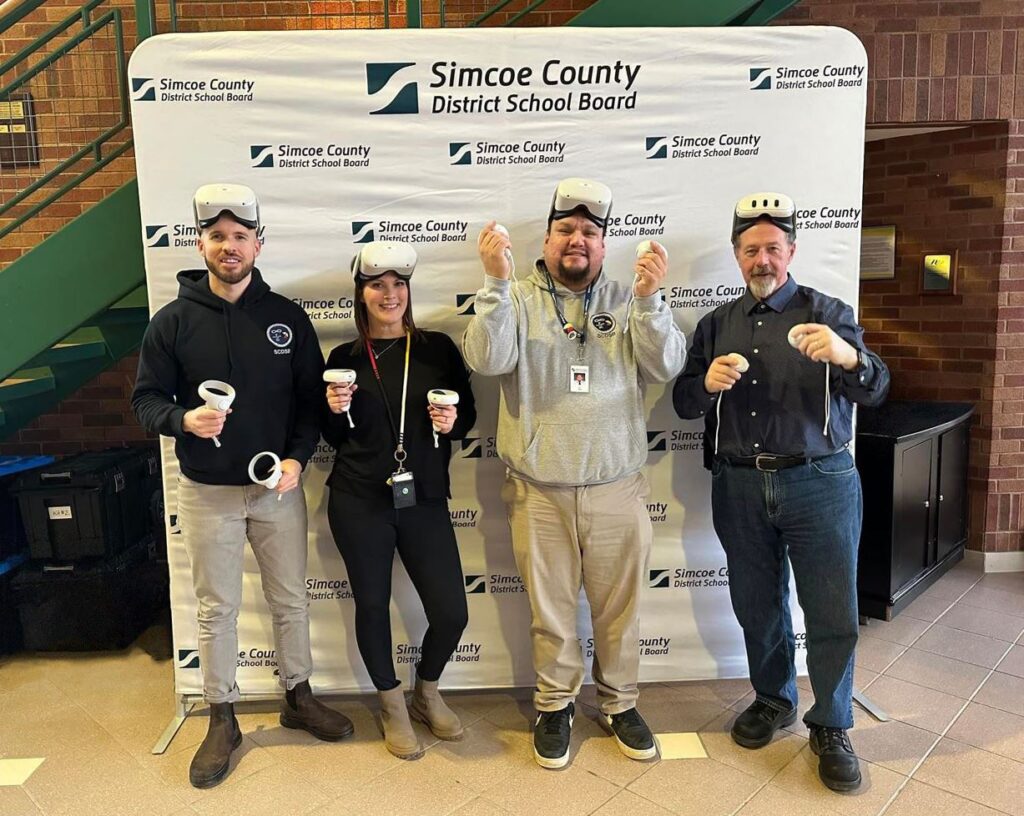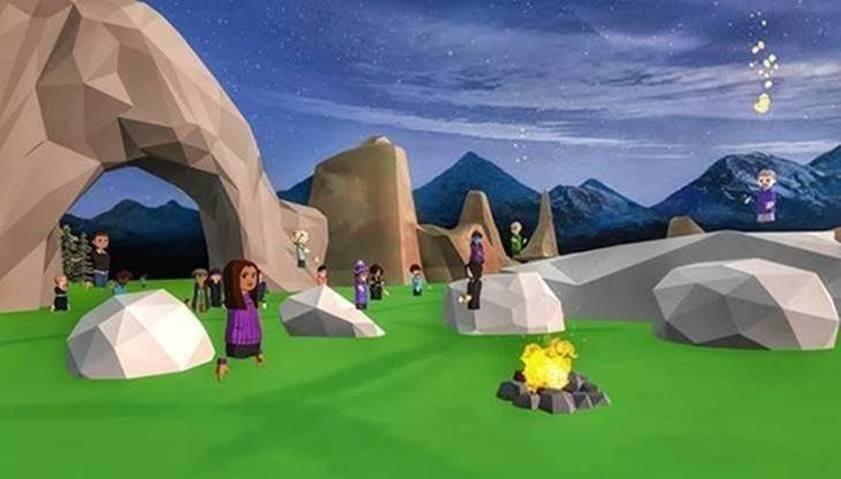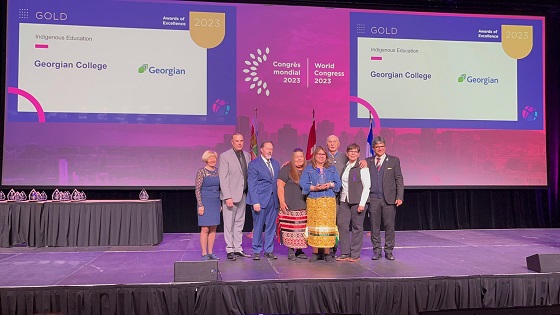New Georgian partnerships take Indigenous language VR program across Canada
Jan. 9, 2024
Students in Ontario and Saskatchewan will soon explore Indigenous language and cultures using virtual reality (VR) as part of their school curriculums thanks to new Georgian College partnerships involving its immersive learning technology.
The Simcoe County District School Board (SCDSB) and the Saskatchewan Indian Institute of Technologies are the first to sign memorandums of alliance with Georgian to allow their elementary, secondary and postsecondary students, respectively, access to the college’s VR worlds that explore Indigenous language in the home, community, workplace, natural environment and more.

The aim of these partnerships is to offer a new teaching tool to those learning about Indigenous language, cultures and treaties, address the Canadian Truth and Reconciliation Calls to Action, and help revitalize and preserve Indigenous languages.
Creating innovative virtual worlds and then teaching Indigenous languages in them has truly been a labour of love, and we are so excited to collaborate with educational partners to make Indigenous languages and cultures accessible to even more people. Helping pave the way for Georgian as a leader in Indigenous education is a dream come true.
– Michele O’Brien, Indigenous Studies Coordinator and Virtual Reality Educator, Georgian College.
The SCDSB was the first to sign on in partnership, and a few Ojibwe language teachers began training on how to use the technology, including VR headsets, in December.
Each VR world provides students with fun and engaging ways to learn and practise their comprehension and speaking skills, and spaces to gather and socialize. The worlds also include Indigenous elements, such as the Medicine Wheel, so students can learn about their significance and other key Indigenous teachings.
Elementary and secondary students to explore VR worlds
Grade 1 to 8 students at Lions Oval and Regent Park public schools, both in Orillia, will be the first to receive the programming. The board plans to expand it to high schools in the future.
“The Simcoe County District School Board’s Indigenous Education Department is fully engaged in an Anishnaabemowin revitalization, preservation and promotion initiative intended to provide greater opportunities for both elementary and secondary school students to learn Anishnaabemowin,” said John Playford, Superintendent of Education, SCDSB.
“The SCDSB is excited to collaborate with Georgian College to bring an innovative approach to teaching and learning Anishnaabemowin through a virtual-reality experience.”

Postsecondary students in Saskatchewan to access VR technology
The Saskatchewan Indian Institute of Technologies, a First Nations-governed educational institution, is planning to use Georgian’s Indigenous language VR worlds in a wide range of program areas, such as health and community studies, innovation and adult basic education. Fifteen staff and faculty members will be trained on how to access and operate the technology.
Georgian introduced VR to Indigenous Studies in 2020 as an innovative way to take language learning to the next level and to connect Indigenous educators and communities during the COVID-19 pandemic, said Rob Theriault, Immersive Technology Manager at the college.
Theriault and O’Brien first developed the concept, called Indigenous Peoples in XR, for these new partnerships at that time, with a goal to eventually invite non-Indigenous learners to events in these virtual worlds to hear from Indigenous teachers and better understand Indigenous issues.
Georgian recognized as global leader in Indigenous education
Indigenous language VR worlds are also part of the curriculum in Georgian’s Anishnaabemowin and Program Development and Maajii-Anishnaabemdaa (Start Speaking the Language) programs.
The creation and evolution of these VR worlds has not gone unnoticed, with Georgian receiving gold in the category of Indigenous Education at the 2023 World Federation of Colleges and Polytechnics’ Awards of Excellence for efforts to ensure preservation of the Anishnaabemowin language. The team that developed the VR worlds also received the 2022 Minister of Colleges and Universities’ Award of Excellence in the category of Future Proofing students.

Theriault credits much of the expansion of Indigenous education in VR at Georgian to the work of O’Brien and Angeline King, Indigenous Studies Professor and Virtual Reality Educator.
“They have had so much success teaching language in the VR worlds that they have, and continue to be, invited to speak on podcasts, the news and other media,” he said. “They have stirred up so much interest in just a few years that our dream to connect and exchange ideas with Indigenous educators and communities in a virtual-reality space has now become a reality.”